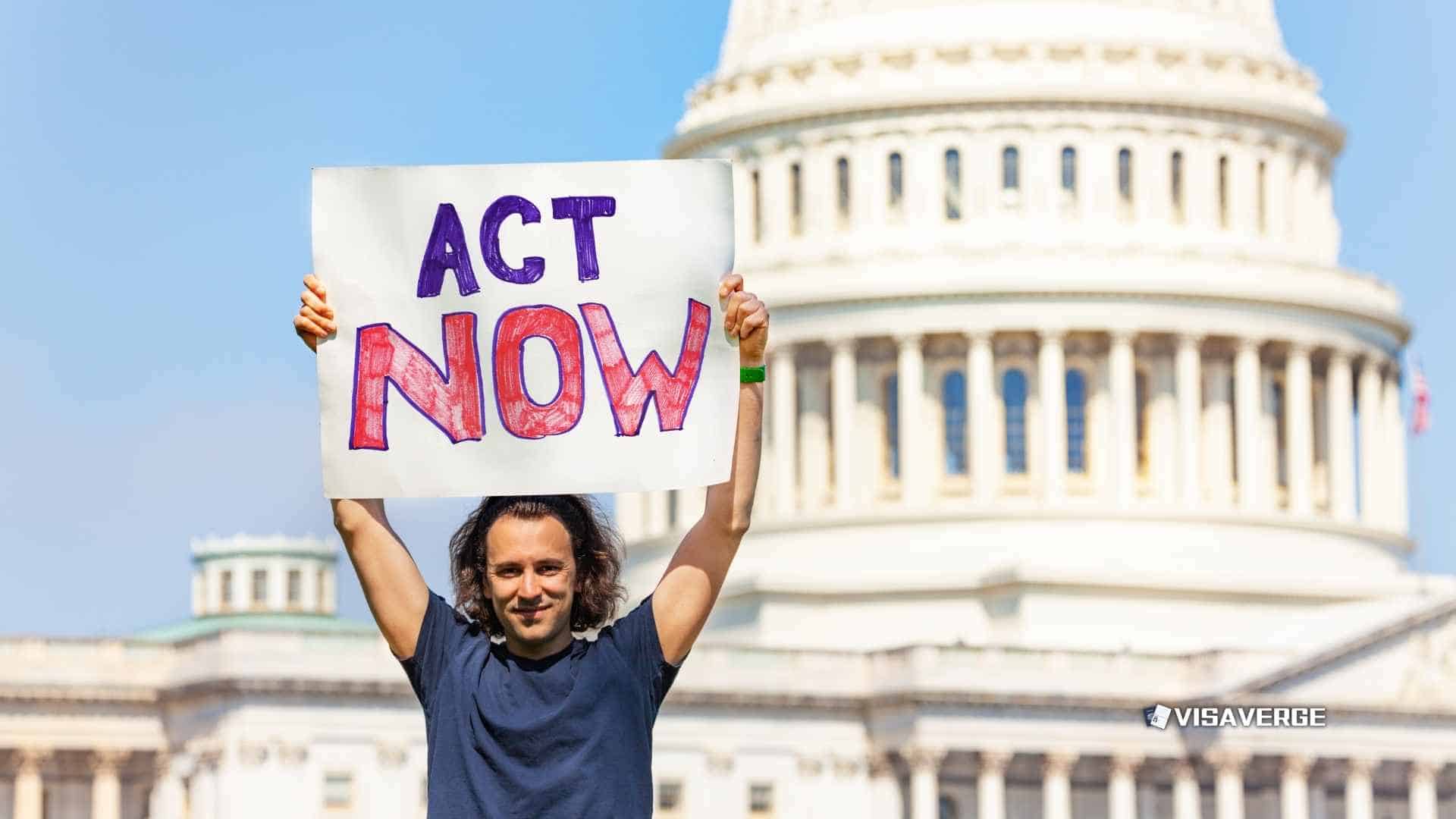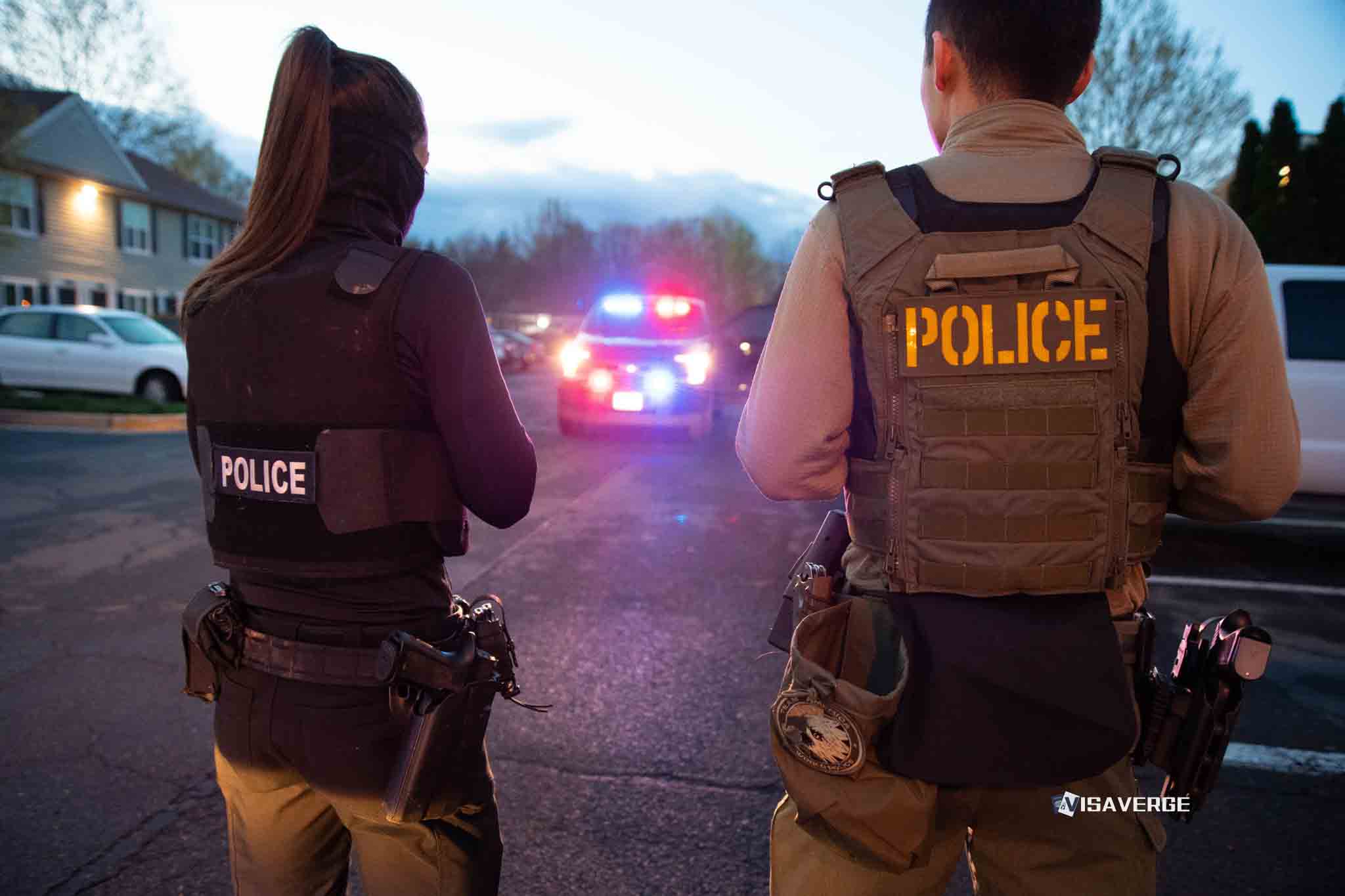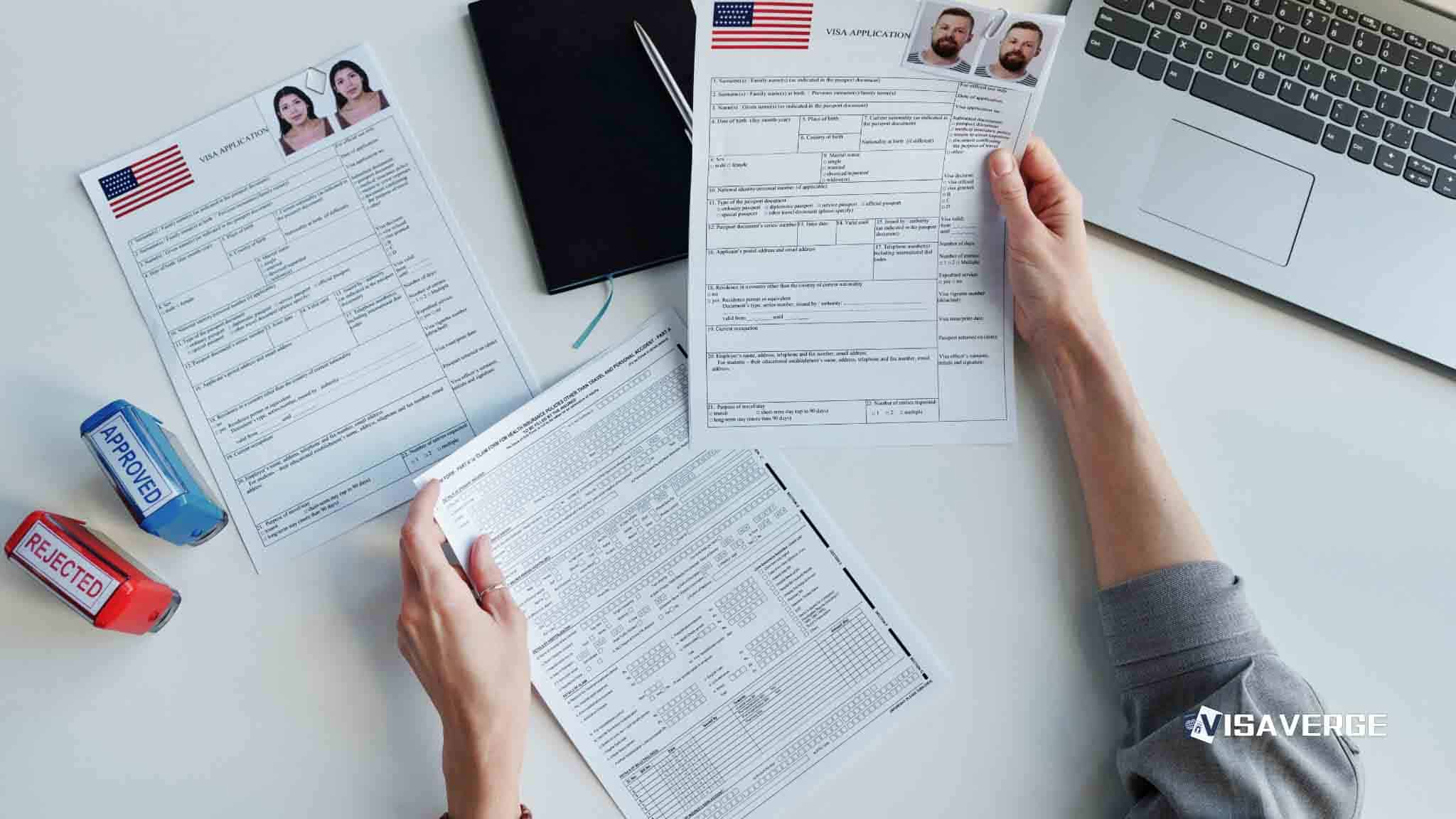(CONNECTICUT) Connecticut on Tuesday joined a group of 19 states escalating their courtroom fight against the Trump Administration’s immigration agenda, filing an amicus brief in April 2025 that backs a challenge to what the coalition calls an Ideological Deportation Policy targeting noncitizens for their political views. State officials say the effort centers on visa revocations directed at people with lawful status—especially college students and faculty—whose speech the administration allegedly disfavors, with more than 700 visas revoked since the policy began, according to the filing.
Core legal claims and alleged harms

The filing argues that the policy violates the First Amendment and harms campuses, public safety, and religious freedom. The coalition’s brief advances a broader legal theory: that punishing protected expression through immigration tools chills speech and injects politics into visa decisions.
“Pulls from some of the darkest authoritarian playbooks,” Connecticut Attorney General William Tong said, warning that removing lawful status leaves people exposed to arrest, detention, and deportation.
State officials emphasize that colleges depend on open debate. They say faculty and students from abroad are increasingly reluctant to raise concerns, worried that a social media post or research topic could put a hard-won visa at risk.
Human impact — the Tufts case
The human effects surfaced in a case that has drawn wide attention in New England. Tufts University student Rümeysa Öztürk learned her status was revoked only after she was taken into custody, leading to arrest and detainment on March 25, 2025.
- That episode became a rallying point for universities and civil rights groups.
- Sudden loss of status can trigger cascading consequences before a court ever hears the facts:
- Removal from classes
- Loss of housing
- Separation from community support
Supporters said the arrest shocked classmates and faculty, who scrambled to find counsel while trying to keep academic plans intact.
Broader coordinated litigation
The amicus brief is one front in a wider push by states against several Trump-era immigration measures.
- In a separate lawsuit filed in Massachusetts federal court, 18 states including Connecticut moved to block President Trump’s executive order aiming to end birthright citizenship.
- The complaint asserts the order clashes with the 14th Amendment guarantee that anyone born on U.S. soil is a citizen.
- The order directs federal agencies to stop issuing passports and other citizenship documents to children born in the United States whose mothers lack legal status or whose parents are not lawful permanent residents.
States say the executive order would upend long-settled law and disrupt families’ legal identities overnight.
Parties in the Massachusetts suit
The states in the Massachusetts suit are: California, Colorado, Connecticut, Delaware, Hawaii, Maine, Maryland, Massachusetts, Michigan, Minnesota, Nevada, New Jersey, New Mexico, New York, North Carolina, Rhode Island, Vermont, and Wisconsin, joined by San Francisco and Washington, D.C.
- Four additional states—Illinois, Arizona, Washington, and Oregon—filed a similar case in Washington state, signaling a coordinated strategy across jurisdictions.
According to analysis by VisaVerge.com, the multistate filings show how state attorneys general are using parallel cases to speed review in multiple courts and create pressure for fast rulings on constitutional questions raised by the Trump Administration’s actions.
Other legal challenges by the coalition
The coalition’s filings target multiple policies and practices:
- Immigration-related conditions tied to billions in federal funding, arguing those conditions unlawfully force states and cities to adopt federal enforcement priorities or lose money for public safety and social services.
- The expansion of expedited removal inside the country, which allows rapid deportations without full immigration court hearings. The states say the expansion risks sending people away in days or even hours, with little chance to prove legal claims or establish ties to the United States.
For context, the Department of Homeland Security’s designation expanding that process was published in the Federal Register; the government’s rulemaking record on expedited removal can be found in the Federal Register notice.
Real-world collateral damage highlighted
While the legal briefing on the Ideological Deportation Policy focuses on First Amendment protections, it also highlights tangible collateral harms:
- University impacts
- Sudden visa cancellations ripple through labs and lecture halls, delaying research and canceling classes.
- Faculty worry about research continuity and recruitment of international scholars.
- Healthcare impacts
- Hospitals report worries about the status of medical residents and visiting scientists.
- Faith communities
- Clergy and congregants from abroad fear peaceful assembly could be misread as political activity.
The coalition’s filing describes a chilling effect that is hard to measure yet easy to feel on campus lawns and in student forums.
Procedural concerns and notice problems
The amicus brief contends that visa decisions tied to political opinion are inconsistent with constitutional norms and historic practice. It also stresses practical problems faced by those targeted:
- People often learn of a revocation at a border checkpoint or during a routine encounter, without notice or a clear path to challenge the decision before detention.
- The Tufts case illustrated how quickly arrest and detention can follow revocation, leaving little time to mount an effective defense.
Stakes in the birthright citizenship fight
The legal fight over birthright citizenship poses separate, high-stakes consequences:
- Opponents of the executive order say changing who is a citizen by birth would place U.S.-born children in legal limbo, complicating:
- School enrollment
- Travel
- Access to benefits and identity documents
- States argue sudden denial of passports and certificates would strain local agencies already handling identity documents and social services.
- They warn of a patchwork of outcomes if courts issue conflicting rulings while cases move toward the Supreme Court.
Constitutional and statutory arguments
Backers of the lawsuits say the contested measures share common themes:
- Rapid shifts with far-reaching effects
- Use of executive authority in ways that states argue exceed constitutional and statutory limits
- In the funding dispute, attorneys general claim the administration tied grants to cooperation with federal immigration enforcement in ways Congress never approved
- In the expedited removal challenge, they point to the risk that long-time residents may be swept up before they can present evidence of family ties or fear of harm
Although immigration law gives the executive branch broad discretion, the states argue that the Constitution and federal statutes set limits that these policies cross.
Practical advice and responses
For students and scholars potentially targeted by the Ideological Deportation Policy, concerns are immediate and practical:
- Fear: that a tweet, a protest, or a published article could end years of study or research.
- Reports from campus legal clinics and immigrant rights groups indicate an uptick in calls from worried students asking whether they should:
- Delete posts
- Skip rallies
Attorneys offer counsel to mitigate risk:
- Document immigration status and maintain records of visas and supporting documents.
- Keep counsel on standby — have contact information for an immigration attorney and campus legal services.
- Avoid panicked reactions, but be prepared for rapid developments.
Attorneys acknowledge, however, that sudden revocations leave little room to react once they occur.
What’s next
Connecticut officials say they will continue filing briefs and bringing suits as needed. Attorney General Tong, whose office has signed onto multiple multistate efforts, argues the stakes go beyond party lines:
“This is about lawful residents and students who followed the rules,” he said, adding that speech should not be the trigger for immigration penalties.
- Several cases are moving on parallel tracks; courts in Massachusetts and Washington state could soon face early requests for injunctions.
- Any conflicting results may increase pressure for a fast appeal and eventual Supreme Court review.
Broader implications
The outcome of these cases will shape more than legal doctrine. It will determine:
- Whether students like Öztürk can plan semesters without fear
- Whether public hospitals can keep training doctors from abroad
- Whether states can shield residents from abrupt enforcement shifts tied to speech
For now, Connecticut and its partners say the record tells a clear story: a set of policies that chill expression and unsettle basic expectations, now headed for a courtroom test whose impact will be felt far beyond campus gates.
This Article in a Nutshell
In April 2025 Connecticut joined 19 states in an amicus brief opposing the Trump Administration’s Ideological Deportation Policy, alleging over 700 visa revocations targeting lawful noncitizens for protected speech. The coalition says the policy violates the First Amendment and causes harm to universities, public safety and religious communities. High‑profile incidents like Tufts student Rümeysa Öztürk’s detention on March 25, 2025 underscore human impacts. States are also contesting an executive order on birthright citizenship and the expansion of expedited removal, seeking rapid judicial review and possible Supreme Court resolution.













